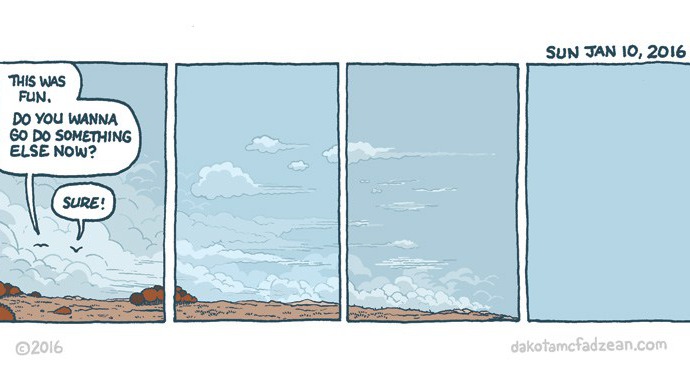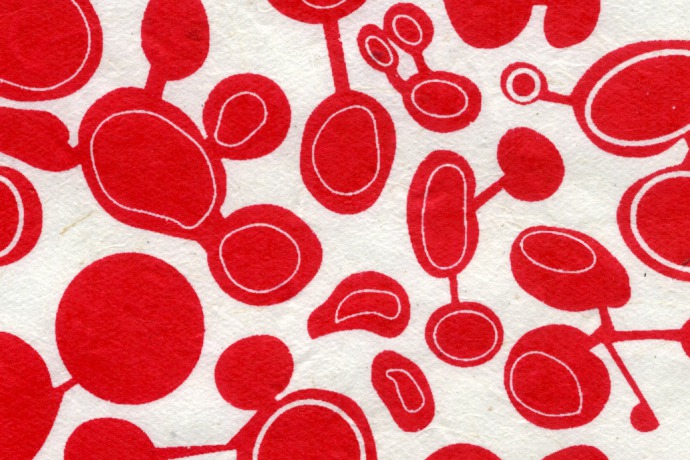Courses
‘Creatrix: Women’s Poetries for the 21st Century’
In the Honours year of my undergrad degree in English Literature, I signed up for a module called Modern Poetry. When the student gaggle – twelve or so of us – arrived for the first seminar, our tutor announced that he wanted to talk to us about the “politics” of the course content before we…
Read MoreSounds and Sweet Airs
Be not afeard, the isle is full of noises… I’m writing this in the back room of our house, overlooking a meeting of gardens. We’re underneath a flight path, and this morning the planes are roaring in, low, carrying the summer visitors and returners to London. In between, a robin’s ticking of alarm reaches me,…
Read MoreRoutes Poets Publish
This beautiful object is a pamphlet created by students from last year’s Routes into Poetry course, Tamar Yoseloff’s regular nuts and bolts craft class for beginners. The pamphlet contains work by Ruth Steadman, Jonathan Hart, Tom Clark, Jess Murrain, Clare Whittle, Leonardo Boix, Stef Bottinelli, Barbara Dillon, Anjila Sinha, Paul Lee-Maynard, Analia Padin and Jenni…
Read MoreCosmos and discovery: an interview with Claire Trévien
An Interview with Claire Trévien
Ah the astronomer’s lot. Now cool again thanks to Brian Cox, but in principle only really fathomable if you have a degree in astrophysics, a finer understanding of stellar mass spectrums, and a very expensive telescope. To an easily confused outsider (which is exactly what I am) it used to be the wonder expressed at things…
Read MoreThe raw material of language: an interview with Victoria Bean
An Interview with Victoria Bean
Victoria Bean is a visual poet and the co-tutor of our upcoming Online Reading Group, ‘The New Concrete: Visual Poetry in the 21st Century’. Victoria has been working over the last 3 years with Chris McCabe (another Poetry School tutor) to put together a major anthology of new approaches, ideas and techniques being used in visual…
Read MoreMaster Your Manuscript
A special offer, a special offer! This poetry manuscript wrangling course is open to everyone, but for the under 30s, it’s half price. That’s because we know it’s Gregory submission time coming up, and we’d like to help out. Here are the course details … Winning Ways to Make the Shortlist Tutor: Saradha Soobrayen Day…
Read More‘A Poet’s Field Guide: Close Reading & Writing’
You’re out in the field, walking, and you see something move out of the corner of your eye. What is it? A poem? Are you sure? Can you narrow it down, what sort? How does it, well, fly? Okay, perhaps the metaphor is a little strained, but identifying a bird and knowing how to approach…
Read MoreThe Poetry of Wolf Hall: an Interview with Ellen Cranitch
An Interview with Ellen Cranitch
Unless you’ve been living under a rock for the last 10 years (not the strangest thing a poet has ever done) you’ll be aware of Wolf Hall, the literary phenomenon by Hilary Mantel, which was recently adapted into one of the most critically acclaimed TV serials in British television history. As we eagerly wait for…
Read MoreThe New Concrete: an online reading course in attentive poetics
One of the narratives of visual poetry since the 1950s is that the form has become one that can be taken up by any poet at some stage of their writing life. The concrete movement had such a strong impact that it’s impossible not to write poetry and to consider, at some point, how these…
Read More‘The Poetry Postbox’
When I feel stuck, exhausted, fog-brained, knotted up, or like I’ll never write another poem again, I sit down and write a letter. Not as an exercise— a real letter to someone, that will be posted. I write the letter by hand, and often look around to see if I can find anything to make…
Read MoreMondo: The Global Avant Garde
I’ve run three courses for the Poetry School so far, all of which have been about avant-garde poetry. Covering specific movements in European, British and World avant-garde writing, I’ve been able to communicate things I’m passionate about to successively erudite and enthusiastic course participants. Here’s what’s coming up for the Autumn Term… Mondo: The Global…
Read MorePoetry and Comics
Poetry and Comics don’t need each other to communicate, and yet Poetry Comics have been around for a while. The New York School Poets, Joe Brainard in particular, created comics which used poetic text, and the idea seems to have grown from there. In the eighties an American writer and educator called Dave Morice published…
Read More
Saturday Sessions: an Interview with Ros Barber
An Interview with Ros Barber
We caught up with poet and novelist Ros Barber ahead of her next term of Saturday Sessions: a monthly workshop course of feedback, discussion and writing for poets… Hi Ros! Your new book, Devotion, has just been published – could you tell us more about that? It’s a novel, following up on the success of my…
Read MoreDevouring and Creation: the Poetry of Food and that which Feeds our Poetry
In both his letters and his poetry, John Keats implored artists to “live unpoetically” by focusing on an “acuteness of vision”. This means listening, watching, touching and tasting what is going on around us every day. We do not isolate special occasions in order to squeeze out a poem, we are moved by something that…
Read MorePoetry Studio: an Interview with Fiona Hamilton
An Interview with Fiona Hamilton
We caught up with poet and tutor Fiona Hamilton to find out more about her new course in Bristol, Poetry Studio, starting 16 September… Hi Fiona! What poetry are you reading at the moment? Today I read poems by Lawrence Ferlinghetti (‘Don’t Let That Horse’), Wendy Cope (‘The Uncertainty of the Poet’) and R.S. Thomas…
Read MoreCreatrix: an Interview with Claire Askew
An Interview with Claire Askew
Expectations, categorisations and loaded words: we caught up with poet and tutor Claire Askew to find out more about her Autumn Term course, ‘Creatrix: Women’s Poetries for the 21st Century’: Hi Clare! How’s your summer shaping up? Claire: Great, thanks! I’m just back from a holiday/research trip to Cornwall: I’m doing research into English witchcraft for…
Read MoreOBJECTIVE/ MINIMAL /”ISM”
I first emerged from my obsession with Ezra Pound in the early 1990s. Then like a lot of Poundians, I went to the poets I’d heard were collected in the New American Poetry, edited by Donald Allen, but not to the anthology itself; to the critical books of Marjorie Perloff, themselves full of generous chunks…
Read Moretry to build a pamphlet: Transreading Central Europe
Not just new ways to write, the Poetry School’s Transreading Central Europe course was about experiments in reading. For the 10 weeks of the course, myself and other students puzzled over languages we barely understood to create poems based on the sounds or shapes of Polish, Slovene or Hungarian (homophonic translation)—which in my case had…
Read More‘The Woods are Lovely, Dark and Deep: Articulating Death’
It cannot be expressed with words and it cannot be expressed without words. Wumen Huikai It is not true that death begins after life. When life stops death also stops. Gösta Ågren translated from the Finland Swedish by David McDuff I’ve found that poems ‘about death’ tend to actually be about life: about…
Read MoreWe’re all Doomed: Poetry and the Apocalypse
Can you remember your first apocalypse? Mine was when I was 16 and it took the form of a computer bug that was going to short the electrical supply, mess up everyone’s computer and make aeroplanes fall out of the sky. These predictions tore my attention in half – at school I was being told…
Read More
Autumn 2015: New Courses and Workshops
Here’s a quick look at what’s on offer for our Autumn Term (beginning 14 September 2015). To find out about a particular course or tutor, follow the title links or call us to enquire on 0207 582 1679. If you’d like to print out a copy of our brochure to look through at home, you can…
Read More
A Long Drink for a Hot Day: an Interview with Holly Hopkins
An Interview with Holly Hopkins
As the Summer days draw out, and the festivals, parties, barbeques and celebrations continue, Holly Hopkins will be inviting students to look at some of the best booze-inspired poetry – and to create some of their own – on her Summer School workshop ‘A Long Drink for a Hot Day’ . We caught up with…
Read MoreSurprised by Joy: an Interview with Dai George
An Interview with Dai George
In his Summer School workshop ‘Surprised by Joy’ this term, Dai George will be exploring the challenges and possibilities of writing from feelings of happiness, wonder and joy. We had a chat to find out more … Hello Dai – tell us about your Summer workshop. What do you have planned? It’s called ‘Surprised by…
Read MoreCelebrate Your History: an Interview with Nick Field
An Interview with Nick Field
How can poetry express the joys, sensations and narratives of shared celebrations? In his new Summer School workshop ‘Celebrate Your History’, artist and writer Nick Field will be working with students to use autobiography to create powerful, joyful poems. We caught up with Nick to find out more… Hi Nick! Tell us a bit about…
Read MoreA Festival of Opposing Forces: Interview with R A Villanueva
An Interview with R A Villanueva
R A Villanueva’s upcoming Summer workshop, ‘A Festival of Opposing Forces’, will be a celebration of unlike things, thinking about poems as spaces to memorialize, illuminate, and make new. We caught up with the poet and asked him a few questions about what the day will have in store… Tell us more about your Summer…
Read More